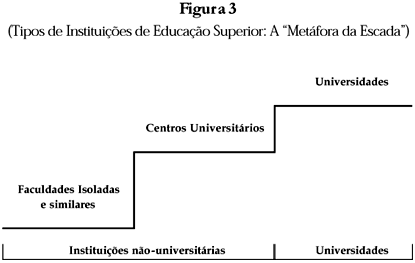This paper presents an explanatory model that discusses the potential of the coordination and control processes that became a bone of contention between the Federal State and public (Federal) and private sectors of higher education, in Brazil. Its main thesis is that the restructuring of higher education advocated by the two successive Fernando Henrique Cardoso's administrations (1995-2002) redefined both the potential and mechanisms of co-ordination and control of the main sociopolitical and institutional forces that constitute, and/or strongly impact on, the activities and destiny of higher education. In light of this analysis, it concludes proposing the Fluctuation Metaphor Model, which is a revision of Clark's Triangle of Coordination (1983), and highlighting that the higher education reform strengthened both the coordination and regulation potential of the State and the coordination power of the market while it weakened the coordinating strength of the academic community.
Education policy; Higher education; Coordination and control; Public and private sectors





